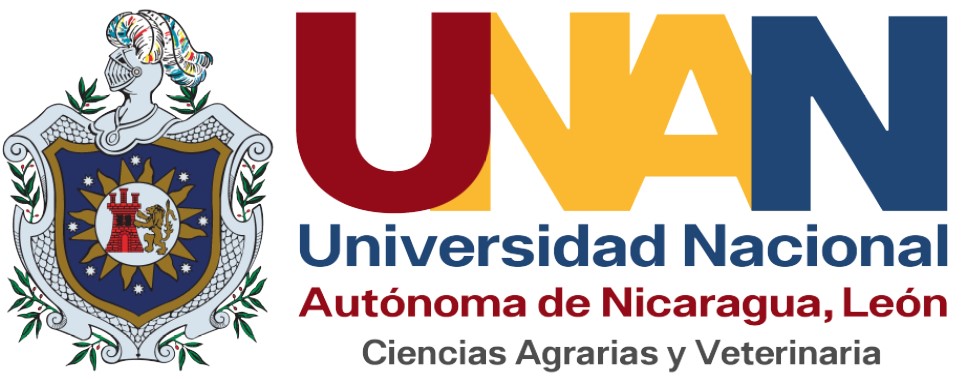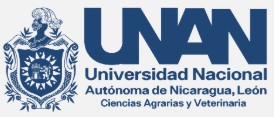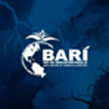Elements of the sustainability in the bioeconomy and its relationship with administrative theories
DOI:
https://doi.org/10.5377/ribcc.v8i15.14183Keywords:
Sustainability, Administrative theory, Process management, Organizational trends, Competitive advantagesAbstract
The objective of this research work was to analyze and distinguish the foundations of sustainability present in the bioeconomy and, in turn, how these practices are related to administrative theories and, at the same time, with organizational management. 62 scientific publications and 4 technical publications were explored. As a result, it was described that sustainability is immersed within the bioeconomy through the Triple Balance Model that integrate the economic, ecological and social dimensions, the Triple Helix Model by promoting alliances between the governmental, academic and private sectors, as well as statutes such as the UN Sustainable Development Goals, or Corporate Social Responsibility. Likewise, the sustainability of the bioeconomy is related to the administrative theories that promote, inside the organizational entities, the design of policies and operations attached to the bioeconomy, for example, good practices that contribute to the preservation of the wildlife, adequacy of clean energy sources, integral growth of communities, as well as the reincorporation of biomass into value chains.
Downloads
Metrics
References
Álvarez, S.E. (2007). Decisiones de “hacer o comprar” en el ámbito de los sistemas de información: una aproximación desde la teoría de los recursos y capacidades. Cuadernos de Economía y Dirección de la Empresa, (31), 223-248.https://www.redalyc.org/articulo.oa?id=80703109
Agüero, J.O. (2007). TEORÍA DE LA ADMINISTRACIÓN: UN CAMPO FRAGMENTADO Y MULTIFACÉTICO. Revista Científica "Visión de Futuro", 7(1). https://www.redalyc.org/pdf/3579/357935466001.pdf
Aguilar, A., Wohlgemuth, R., Twardowski, T. (2018) Perspectives on bioeconomy. New Biotechnology,40, 181-184. https://doi.org/10.1016/j.nbt.2017.06.012
Archila, M. & Pardo, M. (2001). Reseña de "Movimientos sociales, estado y democracia en Colombia" de Maurico Archila y Mauricio Pardo. Pensamiento y Cultura, (4), 255-257. https://www.redalyc.org/pdf/701/70100427.pdf
Arenilla, M. (2019). La arquitectura institucional y el cumplimiento de la Agenda 2030 en Iberoamérica. Revista del CLAD Reforma y Democracia, (75). https://www.redalyc.org/journal/3575/357565037001/html/
Alvarado, K., y Pumisacho, V. (2017). Prácticas de mejora continua, con enfoque Kaizen, en empresas del Distrito Metropolitano de Quito: Un estudio exploratorio. Intangible Capital, 13(2), 479-497. https://www.redalyc.org/pdf/549/54950452008.pdf
Arnold, M., y Osorio, F. (1998). Introducción a los Conceptos Básicos de la Teoría General de Sistemas. Cinta de Moebio, (3). https://www.redalyc.org/pdf/101/10100306.pdf
Barón, L. A. (2018). Las redes interorganizacionales y los procesos de internacionalización de las International New Ventures. Compendium, 21(40). https://www.redalyc.org/journal/880/88055200015/html/index.html
Barney, J. (1991). Firm resources and sustained competitive advantage. Journal of management, 17(1), 99-120. doi:10.1177/014920639101700108
Belandria, E. G. M. (2010). Crisis de la administración pública, innovación en las políticas públicas y nuevas experiencias participativas. Revista Venezolana de Gestión Pública, (1), 107-137.
Bertalanffy, L. (1976). Teoría General de los Sistemas. Editorial Fondo de Cultura Económica.
Benet, M., Zafra, S.L., y Quintero, S.P. (2015). La revisión sistemática de la literatura científica y la necesidad de visualizar los resultados de las investigaciones, Revista Logos, Ciencia & Tecnología, 7(1), 101-103. https://www.redalyc.org/pdf/5177/517751487013.pdf
Biswas, I., Raj, A., y Srivastava, S.K. (2018). Supply chain channel coordination with triple bottom line approach, Transportation Research Part E: Logistics and Transportation Review,115, 213-226. doi:10.1016/j.tre.2018.05.007
Boscán de Pacheco, G. (2019). LA GESTIÓN URBANA SOSTENIBLE: Perspectivas para una ciudad posible en el marco de la teoría institucional. Compendium, 22 (43). https://www.redalyc.org/articulo.oa?id=88063978003
Castillo, A.Y., Suárez, J.H., y Mosquera, J. (2017). Naturaleza y sociedad: Relaciones y tendencias desde un enfoque eurocéntrico. Revista Luna Azul, (44), 248-371. https://www.redalyc.org/pdf/3217/321750362021.pdf
Camaran, M. L. (2018). Redes interorganizacionales e innovación. Compendium, 21(40). https://www.redalyc.org/articulo.oa?id=88055200014
Carvajal-Rodríguez, J. C., Núñez-Rodríguez, J. J., & Araque-Pérez, C. E. (2021). Retos de la bioética frente a los nuevos escenarios del cambio climático. Rev. Iberoam. Bioecon. Cambio Clim., 7(14), 1595–1601. doi: 10.5377/ribcc.v7i14.12486
Consejo Alemán de Bioeconomía - BÖR. (2018). Bioeconomy Policy (Part III) Update Report of National Strategies around the World. A report from the German Bioeconomy Council. Fecha de consulta: abril de 2018. Disponible en: Disponible en: http://gbs2018.com/fileadmin/gbs2018/Downloads/GBS_2018_Bioeconomy-Strategies-around-the_World_Part-III.pdf
Daponte, R. R., Parada, A. D., & Vázquez, E. G. (2008). La responsabilidad social empresarial: un acercamiento a la realidad empresarial de Galicia. In Universidad, Sociedad y Mercados Globales (pp. 309-324). Asociación Española de Dirección y Economía de la Empresa (AEDEM).
El-Chichakli, B., von Braun, J., Lang, C., Barben, D. (2016). Five cornerstones of a global bioeconomy. Nature, 535, 221-223. https://doi.org/10.1038/535221a
Espinoza, R.L. (2011). Redes de investigación y desarrollo. Estructuras organizacionales para la transferencia de conocimiento. Multiciencias,11(3),235-243. https://www.redalyc.org/pdf/904/90421736003.pdf
Fong, C., Flores, K. E., y Cardoza, L. M. (2017). La teoría de recursos y capacidades: un análisis bibliométrico. Nova Scientia, 9(19), 411-440. https://www.redalyc.org/pdf/2033/203353519023.pdf
García de León, S. (2006). Importancia estratégica de los activos intangibles. Un análisis desde la perspectiva de la teoría de recursos y capacidades. Administración y Organizaciones, 9(17), 93-115. https://rayo.xoc.uam.mx/index.php/Rayo/article/view/247
García, J.J., y Madero, S.M. (2016). La Evolución del Concepto de Responsabilidad Social Corporativa: Revisión literaria, Conciencia Tecnológica, (51),38-46. https://www.redalyc.org/pdf/944/94446004006.pdf
Global Bioeconomy Summit - GBS. (2015a). Communiqué Global Bioeconomy Summit 2015. Making bioeconomy work for sustainable development. Berlin. Fecha de consulta: enero de 2018. Disponible en: http://gbs2015.com/fileadmin/gbs2015/Downloads/Communique_final_neu.pdf
Global Bioeconomy Summit - GBS. (2015b). Conference Report. For a Global Sustainable Bioeconomy. Berlin. Fecha de consulta: noviembre de 2017. Disponible en: http://gbs2015.com/documentation/
Global Bioeconomy Summit - GBS (2018a). Communiqué. Global Bioeconomy Summit 2018 - Innovation in the Global Bioeconomy for Sustainable and Inclusive Transformation and Wellbeing. Fecha de consulta: abril de 2018. Disponible en: http://gbs2018.com/fileadmin/gbs2018/Downloads/GBS_2018_Communique.pdf
González, C. J., Zizaldra, I., y Mercado, P. (2015). Sustentabilidad organizacional en Pymes familiares restauranteras de La Jonquera en Cataluña, España. Nóesis. Revista de Ciencias Sociales y Humanidades, 24(47), 80-97. https://www.redalyc.org/pdf/859/85939868006.pdf
Gutiérrez, L. (2017). Sistema teórico explicativo sobre la dinámica de las redes interorganizacionales. Revista Venezolana de Gerencia, 22(77),97-120. https://www.redalyc.org/pdf/290/29051457007.pdf
Herrera, J. F., Vásquez, M. C., y Ochoa, E. (2020). La evolución de la responsabilidad social empresarial a través de las teorías organizacionales. Revista Científica "Visión de Futuro", 24(2). https://www.redalyc.org/articulo.oa?id=357963491003
Intxaurburu ,C.M.G., y Ochoa,C. (2005). Una revisión teórica de la herramienta de benchmarking. Revista de dirección y administración de empresas, (12), 73-103. https://dialnet.unirioja.es/servlet/articulo?codigo=1250310
Intxaurburu,C.M.G., Ochoa, L., y Velasco, B. E. (2007). ¿Es el Benchmarking una herramienta de aprendizaje organizacional?. AEDEM,2,1-14. https://dialnet.unirioja.es/servlet/articulo?codigo=2499425
Jiménez-Sánchez, G. & Philp, J. (2015). Omics and the bioeconomy. EMBO Reports. 16, 17-20. https://doi.org/10.15252/embr.201439409
Katz, D., y Kahn, R. L. (1995). Psicología social de las organizaciones. Editorial Trillas.
Khan, I.S., Ahmad, M.O., y Majava, J. (2021). Industry 4.0 and Sustainable Development: A Systematic Mapping of Triple Bottom Line, Circular Economy and Sustainable Business Models Perspectives, Journal of Cleaner Production. doi:10.1016/j.jclepro.2021.126655
Lewandowski, I. (Editor). (2018). Bioeconomy - Shaping the Transition to a Sustainable, Biobased Economy. Springer International Publishing. 164 p. doi:10.1007/978-3-319-68152-8_13
Lokko, Y., Heijde, M., Schebesta, K., Scholtès, P., Van Montagu, M., & Giacca, M. (2018). Biotechnology and the bioeconomy - Towards inclusive and sustainable industrial development. New Biotechnology, 40, 5-10. https://doi.org/10.1016/j.nbt.2017.06.005
López-González, A. S., Zuniga-González, C. A., Sol-Sánchez, Á., & Santiváñez-Galarza, J. L. (2016). Teorías del desarrollo sustentable para el siglo XXI: un breve análisis. Revista Iberoamericana de Bioeconomia y Cambio Climático, 2(1), 437-451.
https://doi.org/10.5377/ribcc.v2i1.5710
Marciniak, R. (2017). El benchmarking como herramienta de mejora de la calidad de la educación universitaria virtual. Ejemplo de una experiencia polaca. EDUCAR, 53(1),171-207. https://www.redalyc.org/pdf/3421/342149105010.pdf
Mayo, E. (1972). Problemas humanos de la civilización industrial. Nueva Visión.
McCormik, K., & Kautto, N. (2013). The Bioeconomy in Europe: An Overview. Sustainability, 5 (6),2589-2608.https://doi.org/10.3390/su5062589
Milán Pérez, J. A., & Zúniga-Gonzalez, C. A. (2021). Necesidades de investigación y transferencia de tecnologías sobre cambio climático en Nicaragua: Una oportunidad en la Bioeconomía. Rev. Iberoam. Bioecon. Cambio Clim., 7(13), 1518–1543. https://doi.org/10.5377/ribcc.v7i13.11270
Pérez, J.I. (2013). Revisión Sistemática de Literatura en Ingeniería, Formación Universitaria, 6(3). https://www.redalyc.org/pdf/3735/373534466001.pdf
Platas, D. E., Vilaboa, J., González, L., Severino, V. H., López, G., y Vilaboa, I. (2017). UN ANÁLISIS TEÓRICO PARA EL ESTUDIO DE LOS AGROECOSISTEMAS. Tropical and Subtropical Agroecosystems, 20(3), 395-399. https://www.redalyc.org/pdf/939/93953814017.pdf
Quezada, F. (2004). Análisis cualitativo de los recursos y capacidades de una empresa. Horizontes empresariales, 3(1), 29-40. http://revistas.ubiobio.cl/index.php/HHEE/article/view/2073
Rincón, D., y Romero, M.G. (2002). Tendencias organizacionales de las empresas. Revista Venezolana de Gerencia, 7(19), 355-374. https://www.redalyc.org/pdf/290/29001902.pdf
Rodríguez, A.G., Mondaini, A.O., Hitschfeld, M.A. (2017). Bioeconomía en América Latina y el Caribe. Contexto global y regional y perspectivas. Unidad de Desarrollo Agrícola, División de Desarrollo Productivo y Empresarial de la Comisión Económica para América Latina y el Caribe. Serie Desarrollo Productivo CEPAL (215). 94 p. https://www.cepal.org/es/publicaciones/42427-bioeconomia-america-latina-caribe-contexto-global-regional-perspectivas
Reyes-Díaz, M. B., & Zúniga-González, C. A. (2022). La responsabilidad de las Universidades para enseñar Contabilidad bajo Normas Internacionales de Información Financiera (NIIF): Caso Nicaragua. REICE: Revista Electrónica De Investigación En Ciencias Económicas, 9(18), 39–57. Recuperado a partir de https://revistacienciaseconomicas.unan.edu.ni/index.php/REICE/article/view/489
Santamaría, R. (2017). Factores críticos de la gestión de la calidad determinantes del éxito sostenido empresarial en las PYMES. Ingeniería Industrial. Actualidad y Nuevas Tendencias, 5(19),105-118. https://www.redalyc.org/pdf/2150/215055006008.pdf
Silva, S. (2021). Corporate contributions to the Sustainable Development Goals: An empirical analysis informed by legitimacy theory, Journal of Cleaner Production, 292. doi:10.1016/j.jclepro.2021.125962
Taylor, F.W., (1911). Los Principios de la Administración Científica. Herrero Hermanos, Sucs., S.A., México.
Thompson, J. (1997): Strategic management: awareness and change, International Thomson business Press, London Van Marrewijk, M., & Hardjono, T. W. (2003).
Vargas-Hernández, J. G., Pallagst, K., & Hammer, P. (2018). Bio economía en la encrucijada del desarrollo sostenible. Rev. Iberoam. Bioecon. Cambio Clim., 4(7), 800–815. https://doi.org/10.5377/ribcc.v4i7.5952
van Marrewijk, M., & Hardjono, T. W. (2003). European Corporate Sustainability Framework for Managing Complexity and Corporate Transformation. Journal of Business Ethics, 44(2/3), 121–132. http://www.jstor.org/stable/25075022
Vidal, E., y Soto, E. (2013). Principios de la RSC en los modelos de excelencia. Tourism & Management Studies,4,1122-1133. https://www.redalyc.org/pdf/3887/388743877007.pdf
Zúniga-González, C. A., López, M. R., Icabaceta, J. L., Vivas-Viachica, E. A., y Blanco-Orozco, N. (2022). Epistemología de la Bioeconomía. Revista Iberoamericana de Bioeconomía y Cambio Climático, 8(15), 1786–1796. doi:10.5377/ribcc.v8i15.13986
Zuniga-González, C. A., Zarabozo, O. D., Moreno, M. A. G., Quiros, O., Palomares, R. D., Gaviria, G. D. J. M., & Sanchez, A. S. (2014). Estado del arte de la bioeconomía y el cambio climático. Editorial Universitaria, UNAN León. ISBN impreso 978-99924-28-39-9, ISBN electrónico 978-99924-28-40-5
Alzate, A.M., (2017).ISO 9001:2015 base para la sostenibilidad de las organizaciones en países emergentes. Revista Venezolana de Gerencia, 22(80), https://www.redalyc.org/journal/290/29055967003/29055967003.pdf
Fierro, M.E., y Mercado, S. P. (2012). La innovación organizativa y sus predictores desde la teoría de los recursos y capacidades. Administración y organizaciones, 93-115. https://rayo.xoc.uam.mx/index.php/Rayo/article/view/139
Downloads
Published
How to Cite
License
Copyright (c) 2022 Rev. iberoam. bioecon. cambio clim.

This work is licensed under a Creative Commons Attribution-NonCommercial-ShareAlike 4.0 International License.
Copyright © 2025 Rev. iberoam. bioecon. climate change. National Autonomous University of Nicaragua León (UNAN-León), Knowledge Area of Agrarian and Veterinary Sciences / Specific Area of Agroecology and Agribusiness / Center for Research in Agrarian Sciencies. Academic Directorate. Research Department. Publication and scientific events Unit.












 EDITORIAL
EDITORIAL e-ISSN
e-ISSN


 COPYRIGHT
COPYRIGHT This work is licensed under a Licencia Internacional
This work is licensed under a Licencia Internacional 












